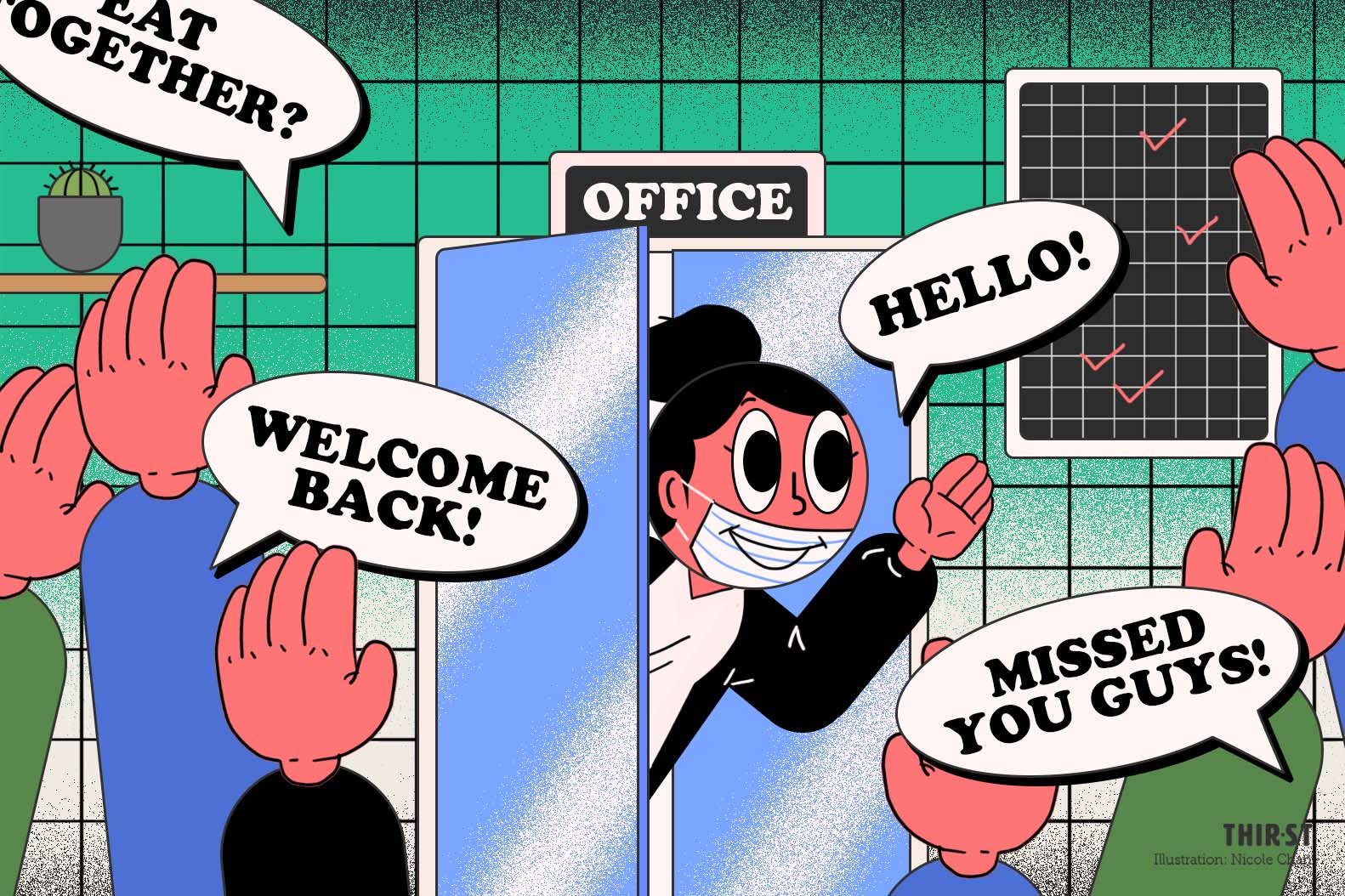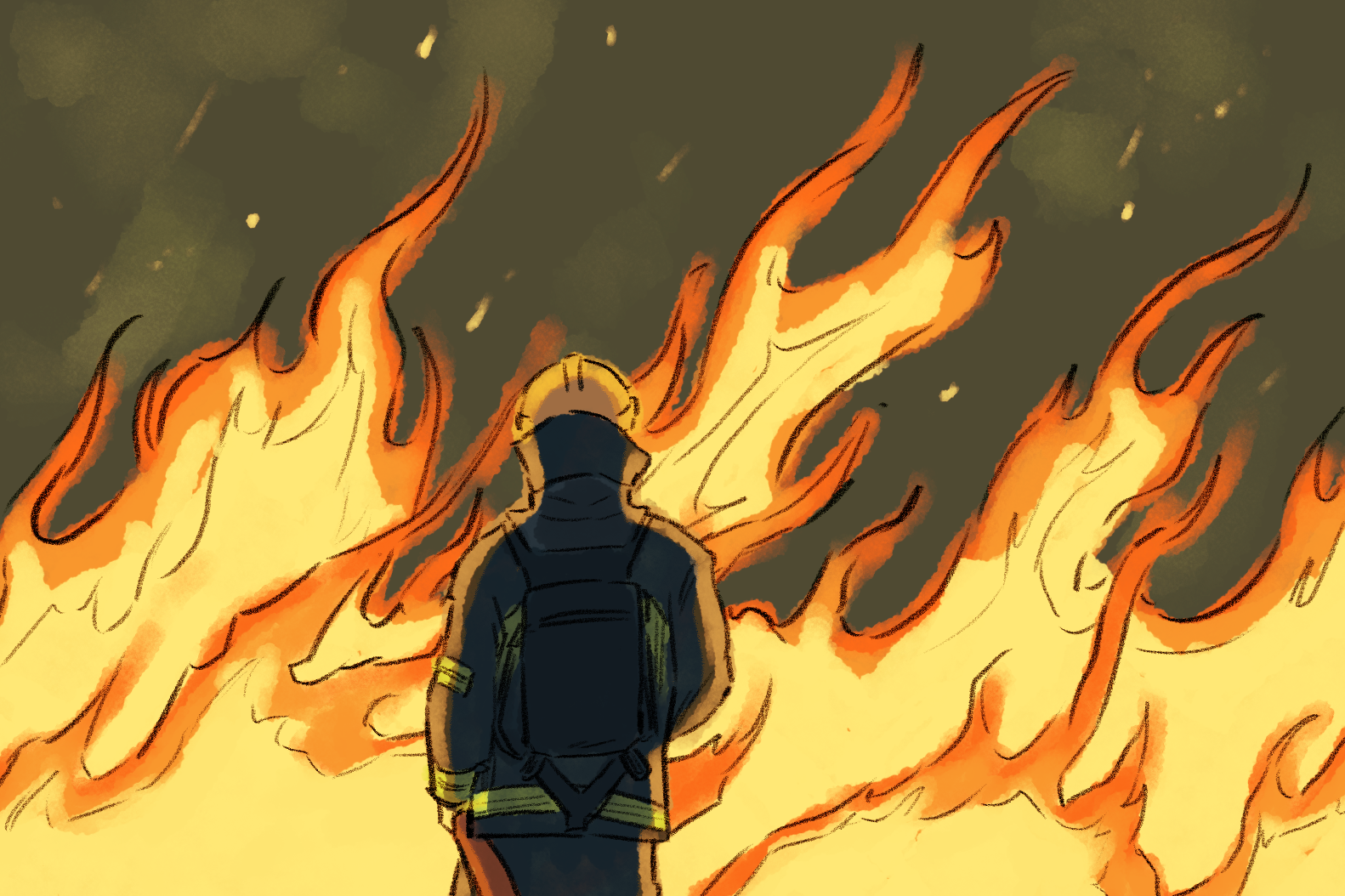Like many, I was thrilled at the prospect of being able to work from home (WFH) when the pandemic first hit.
WFH felt like the ultimate fulfilment of my work-life balance dream for reasons like these:
- Being able to work in the comfort of my own home
- More flexibility over when I start/end my day as long as work gets done
- Time saved on commuting since I live on the opposite end of the island
- The promise of silence and solitude when I need to focus on important tasks
- I can take care of things that have to be done around the house during work breaks
But like many as well, I gradually came to realise that too much of anything might not be a good thing. And too much autonomy can also be a bad thing.
Where once the physical act of leaving the office signalled the end of work and my 30-minute commute allowed me to decompress before reaching home, I found that there was no such separation in my day anymore.
Mornings started bleeding into nights.
It didn’t help that I had to face interruptions from family members during the day, which meant that I had to work at night to make up for the hours.
And as everyone’s hours became more fluid and colleagues were working at different times of the day, messages would roll in at night, over the weekend… anytime really.
It felt like I could never stop working.
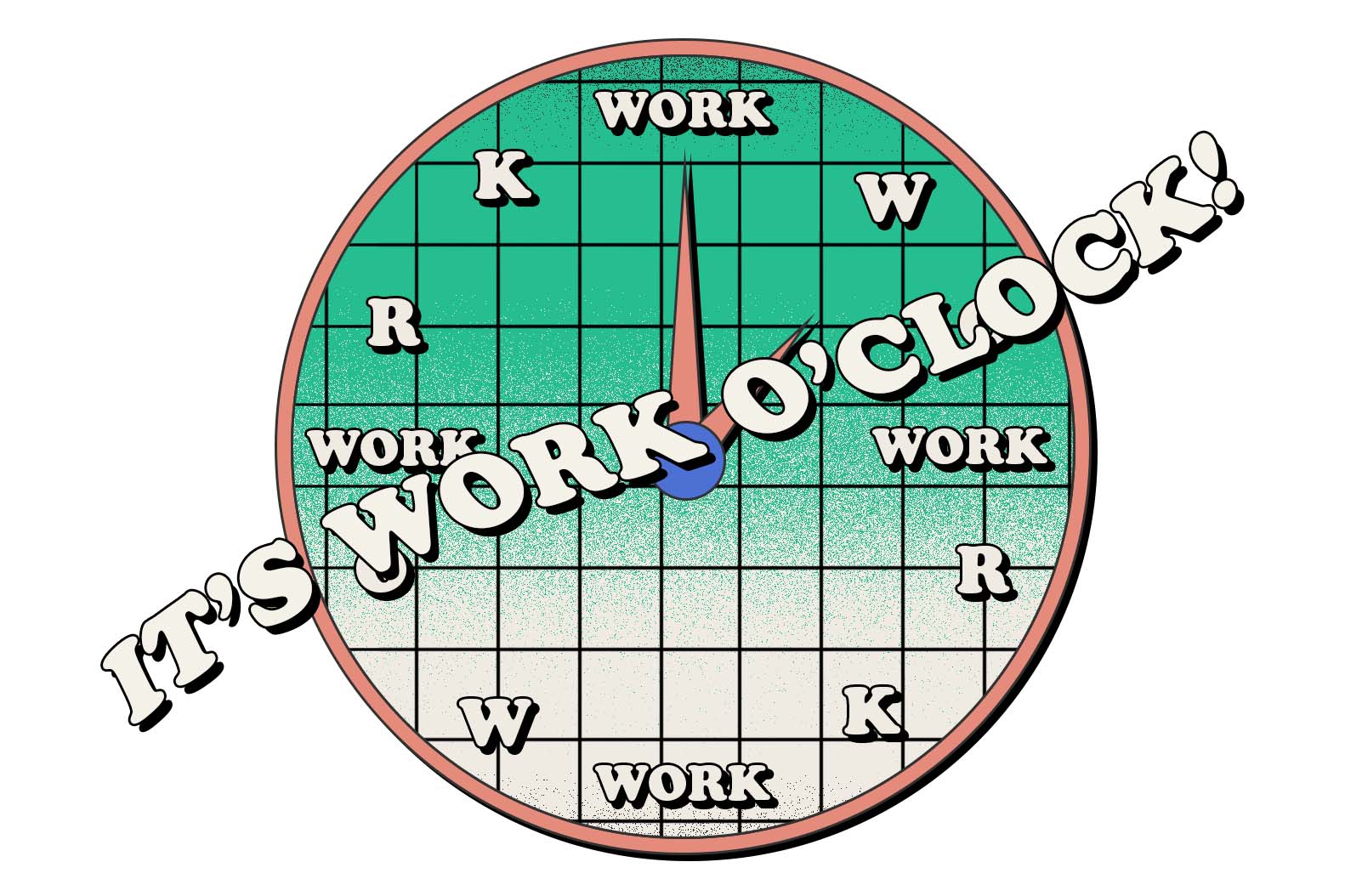
All this to say that I’ve been reflecting on what the lack of boundaries does to one’s mental health.
I know I’m going to sound really old (I’m still a millennial!), but in the early years of my career, work wasn’t done over WhatsApp or Telegram.
Work matters were confined to emails, or discussed face to face, on calls or over the internal messaging system in office.
You didn’t even need to give out your mobile number if you didn’t want to. Chats on our phones were reserved for personal/social use.
(Fun fact: WhatsApp group chats only started in 2011 and were limited to 5 pax!)
CONNECTIVITY CAN BE COSTLY
While I have to admit that being able to text someone for an answer instead of waiting for an email reply has allowed me to get things done faster, I worry that all this convenience has come at a cost.
Because of how connectivity has enabled real-time communication, we expect others to be always-on.
And in turn, others expect the same speed of us.
No reply after 5 minutes… uhhhh, is anyone reading?
No reply after 30 minutes… guys, where y’all at?
I have to say, the way work is done contributes to stress.
Connectivity is not always beneficial when we don’t know how to disconnect.
And for almost two years, I confess that I’ve been struggling with that.
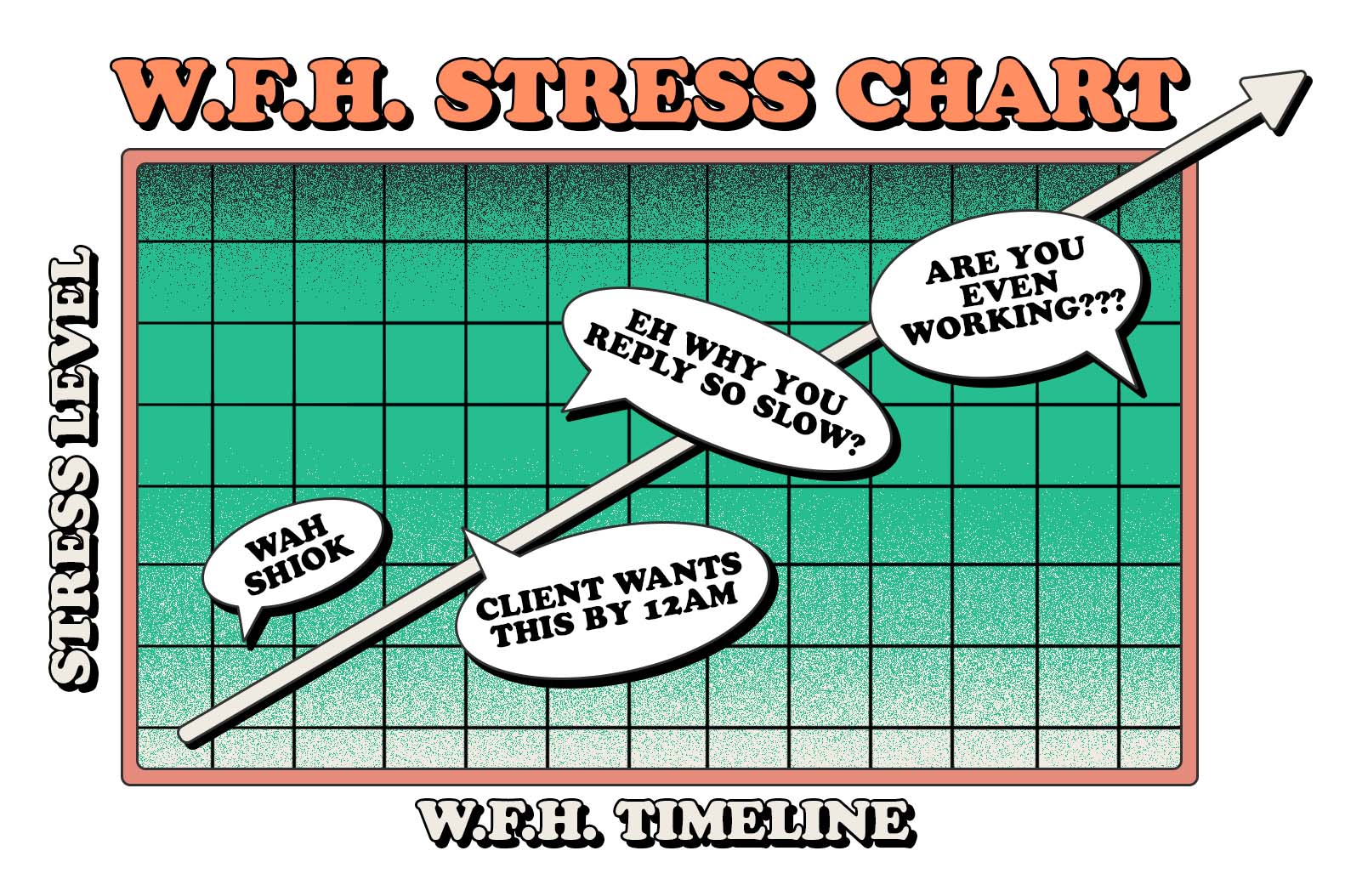
That’s why the announcement that employees could return to the workplace was met with equal parts fear and relief for me.
I fear the loss of freedom, even if I’m just going back for two days a week.
But I also find myself feeling relieved because my WFH experience has shown me that there is wisdom behind the concept of freedom within boundaries.
COMMUNITY IS MORE IMPORTANT THAN I THOUGHT
Aside from being able to more clearly demarcate my work versus rest time, I realised that there are other advantages of working in office that I never quite appreciated too.
- Like having meetings in person (thank God, no more Zoom!)
- Like turning around to ask a question without having to text
- Like the opportunities to catch up over lunch
- Like my colleague who already offered to buy teh for me in the mornings even before I asked
As an introvert, I never thought I’d say this but the restrictions on gatherings and many months of working from home have taken a toll in ways I didn’t expect.
I realised that while I prefer not to be in big groups where I have to make small talk, I miss having meaningful face-to-face conversations with people I am comfortable with.
To my surprise, the lack of social interaction has been hard.
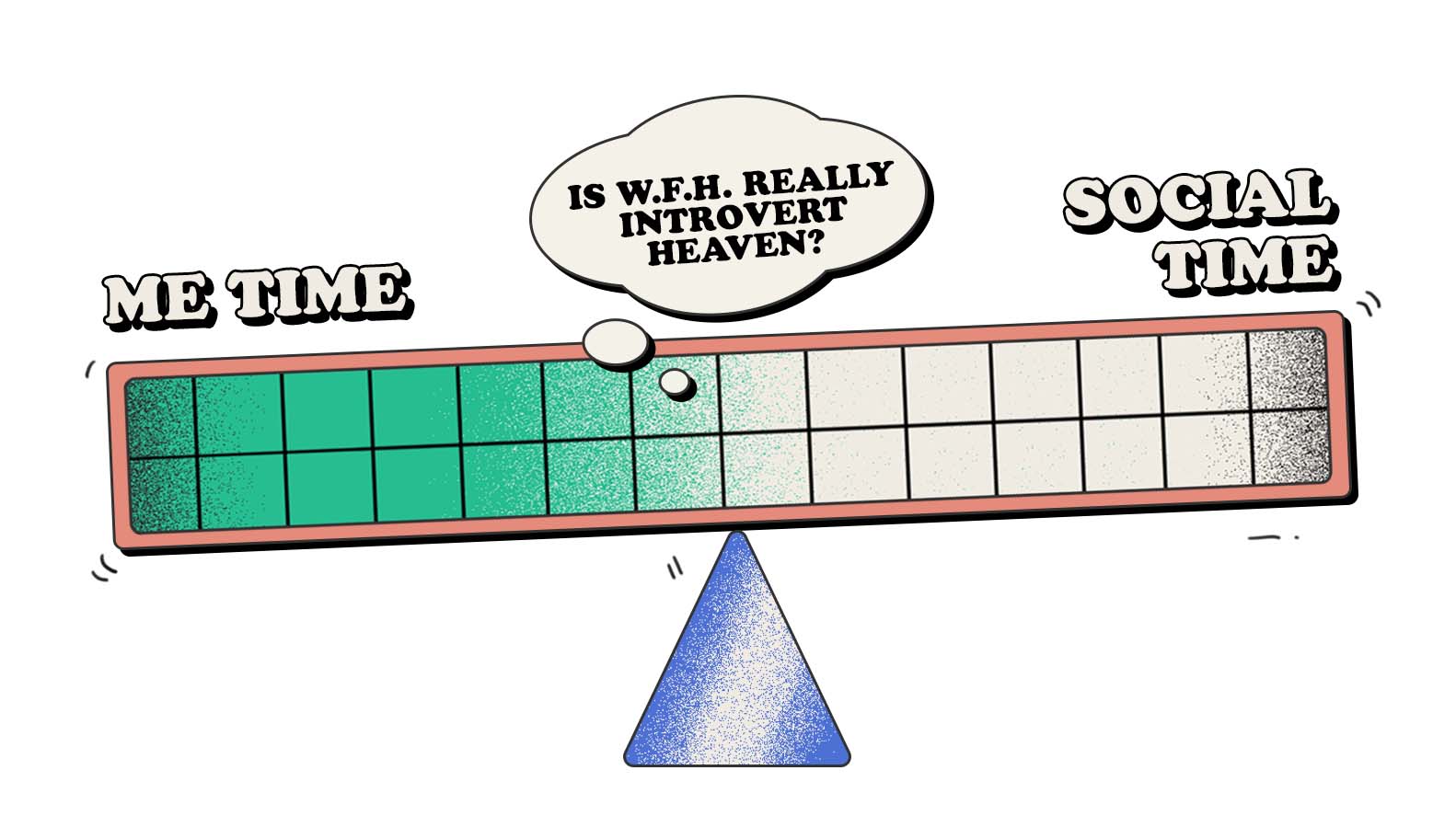
CONSIDER HOW YOU’VE BEEN LIVING
I know that some of us have already returned to office, while others can’t see the end of WFH in sight.
Or perhaps you’re enjoying your time at home, and things have never been better.
But no matter our circumstance, I think we can all agree that the pandemic has been a game changer. And depending on the industry that you’re in, the future of work could be very different.
Who really knows what the road ahead will be like?
As someone who runs, I love how Hebrews 12:1-3 compares our lives on earth to a race.
Written to Jewish Christians who were tired because of their troubles and were at risk of falling away from the faith and returning to their old way of life, the author’s advice was: Don’t look back — look ahead!
Therefore, since we are surrounded by such a great cloud of witnesses, let us throw off everything that hinders and the sin that so easily entangles.
And let us run with perseverance the race marked out for us, fixing our eyes on Jesus, the pioneer and perfecter of faith.
For the joy set before him he endured the cross, scorning its shame, and sat down at the right hand of the throne of God.
Consider him who endured such opposition from sinners, so that you will not grow weary and lose heart.
Truthfully, the past year has felt more like a sprint than a marathon.
But I’ve also learnt more about myself — what has the potential to stumble me, to distract me, to exhaust me.
And now I’m taking all these lessons to heart and looking at what tweaks I need to make to my life so that I can cross the finish line well.
If you’ve been feeling worn out too, this is my encouragement to you, adapted from Hebrews 12:1-3.
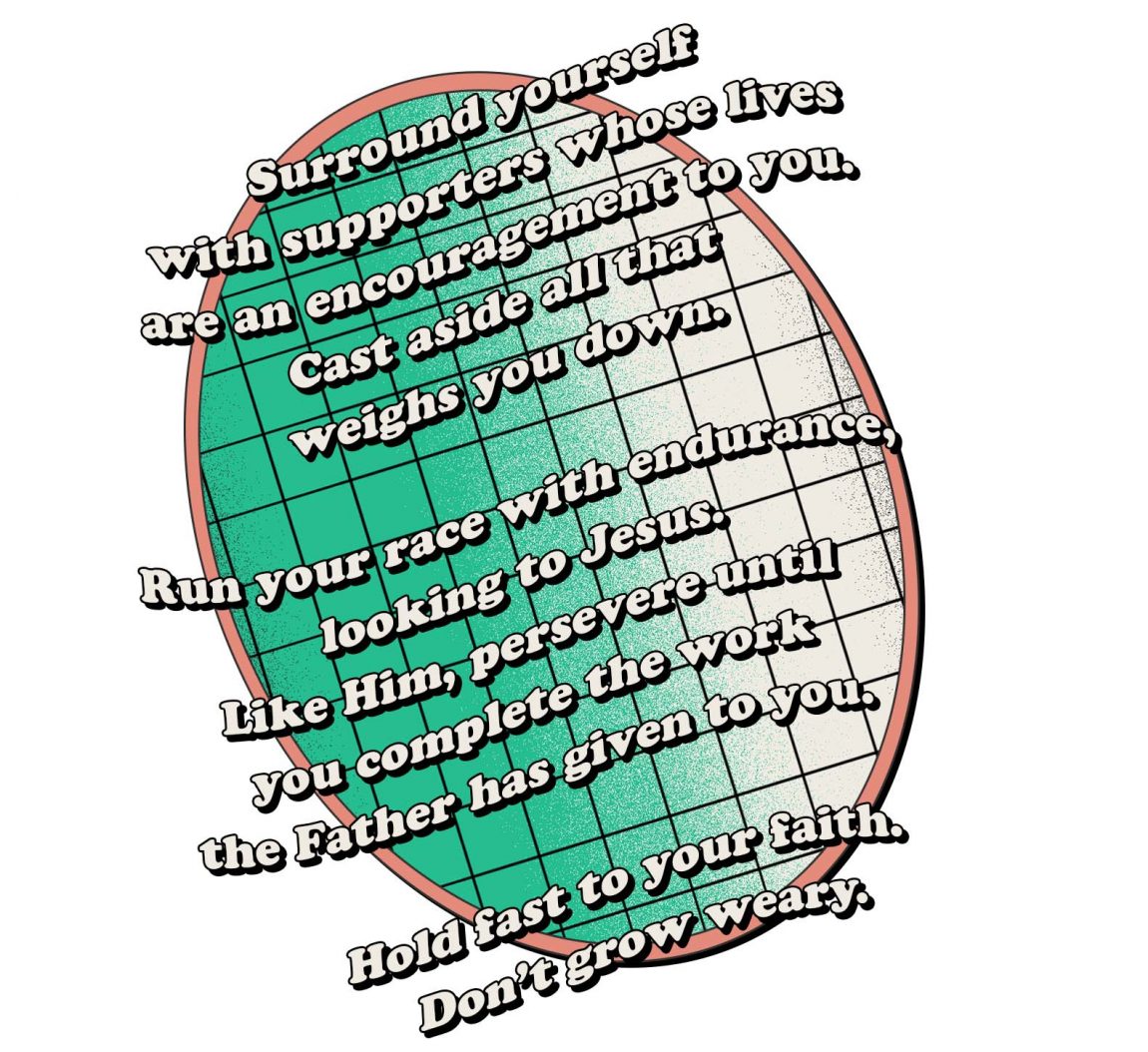
The road ahead may be long and uncertain, but let’s remember to pace ourselves so that nothing will disqualify us from receiving our prize (1 Corinthians 9:24-27).
Not sin. Not burnout.
For some of us, that might mean establishing healthier daily rhythms that allow for sufficient rest and recharge.
For others, it might mean more discipline so that we are spending our time in a way that glorifies Him.
May we, as believers, look up and look ahead with hope.
May we, like the Apostle Paul, be able to say at the very end of our lives: I have fought the good fight, I have finished the race, I have kept the faith.
- How has connectivity been helpful/unhelpful for you? What kind of boundaries do you need to set for yourself?
- How can you make an effort to support someone in your community who might be struggling?
- How has your race been? Are you on track to finishing well?


